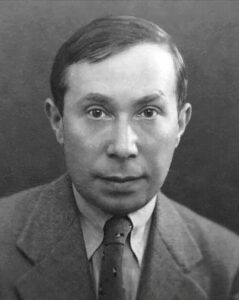Sobre Apología y Critón Strūthiō 001
Parte de:
«Sobre la Apología de Sócrates y el Critón de Platón» / I

Leōnardus Strūthiō (1899-1973)
ĒRVDĪTIŌRIBVS ***
Tabla de contenidos
Versiō hispānica Aemiliā Aquadītī auctrīce 1
I
La Apología de Sócrates es la única obra platónica en cuyo título aparece el nombre de Sócrates. Sin embargo, este es, en forma visible o invisible, el personaje principal de todos los diálogos platónicos: todos ellos son «apologías» de Sócrates o en favor de él. Empero, la Apología de Sócrates es el portal a través del cual entramos en el cosmos platónico: describe toda la vida de Sócrates, todo su modo de vida, la multitud más numerosa, la multitud dotada de autoridad, la ciudad de Atenas, ante la cual fue acusado de un delito capital; es el diálogo de Sócrates con la ciudad de Atenas (cf. 37a4-7).
En el proemio, Sócrates contrasta la manera como él hablará con la manera de sus acusadores: estos hablaron en forma muy persuasiva y, al mismo tiempo, del modo más mendaz posible; él, por su parte, dirá toda la verdad, porque la virtud del orador consiste en decir la verdad, mientras que la virtud del juez o del jurado consiste en concentrarse en determinar la justicia de los dichos del orador. Este, en efecto, no se limitará a exponer los hechos —lo que hizo—, sino también a declarar su inocencia: al obrar como lo hizo, actuó conforme a la justicia. Como confía en la justicia de lo que ha hecho, Sócrates dirá toda la verdad.
Perge ad initium paginae huius
Leōnardī Strūthiōnis verba 1
I
The Apology of Socrates is the only Platonic work with Socrates in the title. Yet Socrates is visibly or invisibly the chief character in all Platonic dialogues: all Platonic dialogues are “apologies” of or for Socrates. But the Apology of Socrates is the portal through which we enter the Platonic kosmos: it gives an account of Socrates’ whole life, of his whole way of life, to the largest multitude, to the authoritative multitude, to the city of Athens before which he was accused of a capital crime; it is the dialogue of Socrates with the city of Athens (cf. 37a4-7).
In the prooemium Socrates contrasts the manner in which he will speak with the manner of his accusers: the accusers spoke most persuasively and at the same time as untruthfully as possible; he on the other hand will say the whole truth, for the virtue of the speaker consists in saying the truth while the virtue of the judge or juryman consists in concentrating on whether what the speaker says is just. For the speaker will not merely state the facts—what he did—but also that they were innocent—that what he did was justly done. It is because Socrates trusts in the justice of what he has done that he will say the whole truth.
Perge ad initium paginae huius
Iūra
El texto en lengua inglesa fue publicado de manera póstuma en un volumen en honor al prof. Jacob Klein: Essais in Honor of Jacob Klein (Annapolī, ē Typographeō Acadēmīae Sānctī Iōhannis MCMLXXVI). Aunque nosotros tomamos como base lo aparecido en una antología dedicada a escritos del prof. Strūthiō en inglés en 1983: Studies in Platonic Political Philosophy (Sicagī, ē Typographeō Ūniversitātis Sicagī MCMLXXXIII). La versión castellana es obra de Aemilia Aquadīs, aparecida en la traducción del volumen mencionado anteriormente (Bonāeropolī, ē Typographeō Amōrrortī MMVIII). La publicación de estos fragmentos promueve la difusión en castellano de la obra del profesor Leōnardus Strūthiō con fines académicos y de formación. Conminamos a visitar su biblioteca más cercana o adquirir el volumen físico en su librería de confianza.

Perge ad initium paginae huius
ĒRVDĪTIŌRIBVS ***
